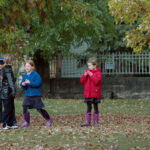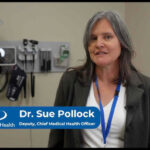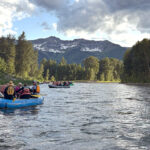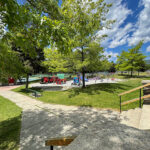Home »

RDEK achieving CARIP carbon neutrality
 In 2018, 50 local governments, including the Regional District of East Kootenay (RDEK), reported achieving carbon neutrality through the Climate Action Revenue Incentive Program (CARIP), five more than in 2017, the B.C. Ministry of Municipal Affairs and Housing reported Sept. 19.
In 2018, 50 local governments, including the Regional District of East Kootenay (RDEK), reported achieving carbon neutrality through the Climate Action Revenue Incentive Program (CARIP), five more than in 2017, the B.C. Ministry of Municipal Affairs and Housing reported Sept. 19.
Each year, the communities, which are signatories to the B.C. Climate Action Charter and report annually on the actions they take to reduce GHG emissions, are eligible for a CARIP grant. The grant provides a refund to local governments equal to 100% of the carbon taxes they pay. In 2018, communities received more than $8 million in carbon tax refunds compared to just over $7 million in 2017.
The 2018 CARIP report highlights not only communities that have reached carbon neutrality, but also those that have taken steps toward reducing their emissions through innovation.
In July 2018, the City of Surrey broke ground on the Clayton Community Centre, which is slated to become the first community centre in North America to achieve Passive House certification. To be certified, a building must consume up to 90% less heating and cooling energy than conventional buildings. Passive House certification is equivalent to the highest step in the BC Energy Step Code.
“Every year, more local governments are taking meaningful action to reduce their emissions,” said Selina Robinson, Minister of Municipal Affairs and Housing. “This shows communities, both big and small, are committed to working together to protect the environment, create sustainable, resilient communities and make life better for people today and well into the future.”
In total, 95% of participating local governments report having a plan in place to support community-wide climate mitigation to reduce their carbon emissions.
The actions taken by local governments in 2018, both big and small, demonstrate the continued commitment of communities throughout the province to address climate change, the ministry stated.
“Investments in alternative energy, critical adaptation infrastructure and introducing ways to save money while reducing emissions are clear demonstrations of continuing leadership by communities across our province,” said George Heyman, Minister of Environment and Climate Change Strategy. “Working together to prepare for a cleaner, stronger and safer future is the CleanBC commitment. Together we are demonstrating impressive progress.”
CleanBC was developed in collaboration with the BC Green Party caucus and supports the commitment in the Confidence and Supply Agreement to implement climate action to meet B.C.’s emission targets.
The total GHG emissions generated by local governments through their corporate operations in 2018 was 273,242 tonnes of carbon dioxide equivalent, a decrease of 533 from 2017. This is equivalent to taking about 190 cars off the road for a year.
Carbon neutrality is reached by municipalities when they balance or offset their total corporate emissions.
The B.C. Climate Action Charter, established in 2007, is a voluntary agreement between the B.C. government, the Union of British Columbia Municipalities and local governments.
So far, 187 of the 190 local governments in B.C. have signed on to the B.C. Climate Action Charter.
The RDEK was the lone local government among the 50 to achieve carbon neutrality through CARIP.
Lead image: The District of Elkford’s new town hall is an example of innovation and design reducing carbon footprints. e-KNOW file photo
e-KNOW







